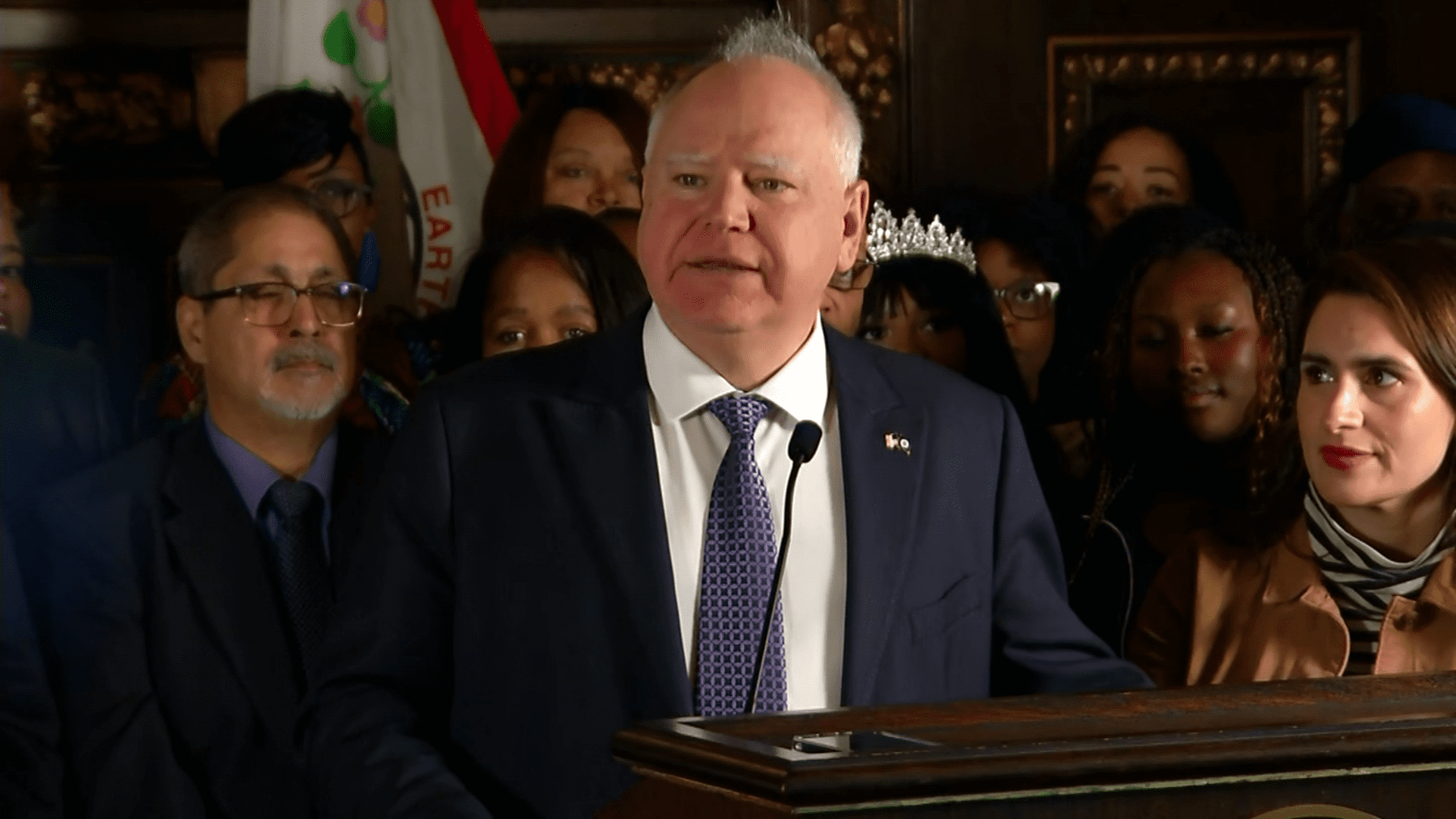Walz makes Juneteenth a holiday; bans hair discrimination
ST. PAUL, Minn. — Juneteeth will become a state holiday in Minnesota, under a bill signed by Gov. Tim Walz on Friday in a state where it’s now illegal to discriminate on the basis of hair texture or style.
The Democratic governor made Minnesota the 26th state to recognize June 19th as a holiday. It’s the date in 1865 viewed as the final abolition of slavery in the U.S. even though it came two years after President Abraham Lincoln’s 1863 Emancipation Proclamation. It became a federal holiday in 2021, and many local governments and companies already observe it.
“Juneteenth is an important opportunity for communities across the state and nation to celebrate freedom, recognize the history and contributions of Black Americans, and recommit to building a more just and equitable society for everyone.” said Governor Walz in a statement. “This is bipartisan legislation. These thanks need to be given. So, let’s make this law.”
“Juneteenth is a powerful celebration that encourages us to reflect on our shared history and celebrate the innumerable contributions of Black Americans in our state,” said Lieutenant Governor Flanagan. “This holiday reminds us that freedom is not fully realized until all of us are truly free. It’s an opportunity to teach the truth of our shared history and recommit to doing everything in our power to deconstruct generations of systemic racism so that every Black Minnesotan can be afforded the freedom and justice that is long overdue. I have tremendous gratitude to all those who made the Juneteenth holiday a reality in our state.”
Walz also held a ceremonial signing Friday of a bill known as the CROWN Act, which he formally signed Wednesday. It stands for “Creating a Respectful and Open World for Natural Hair,” and explicitly prohibits racial discrimination based on natural hair texture and hairstyles such as braids, locs, and twists.
Flanked by a crowd of mostly female Black lawmakers and community leaders, Walz joked about “the irony of an older white bald guy signing this bill,” but said it addresses a real problem.

Gov. Tim Walz (WDIO)
The lead House author, Democratic Rep. Esther Agbaje, of Minneapolis, said the legislation was necessary because the U.S. Supreme Court in 2017 “declined to weigh in on whether natural hair was an immutable part of race.”
Nineteen other states and several cities have enacted similar protections since 2019.
“With this law we are saying that we will not allow hair discrimination as a proxy for race discrimination,” Agbaje said. “We are also saying it is perfectly fine to show up as you are.”